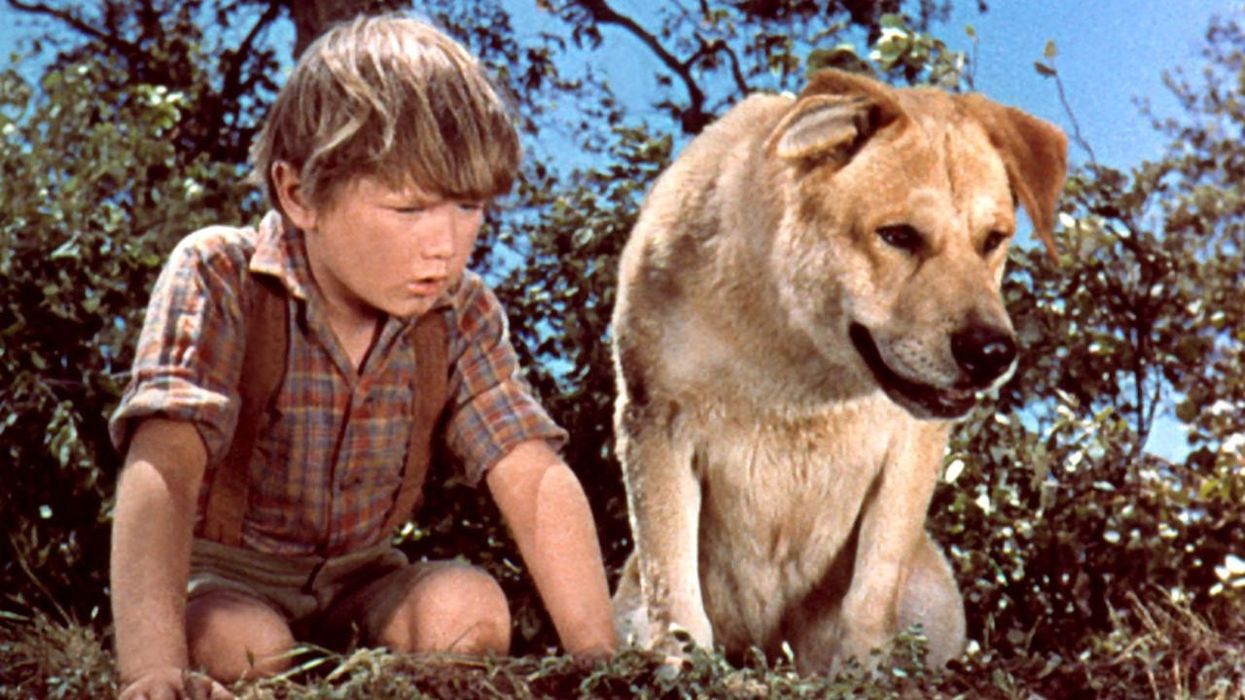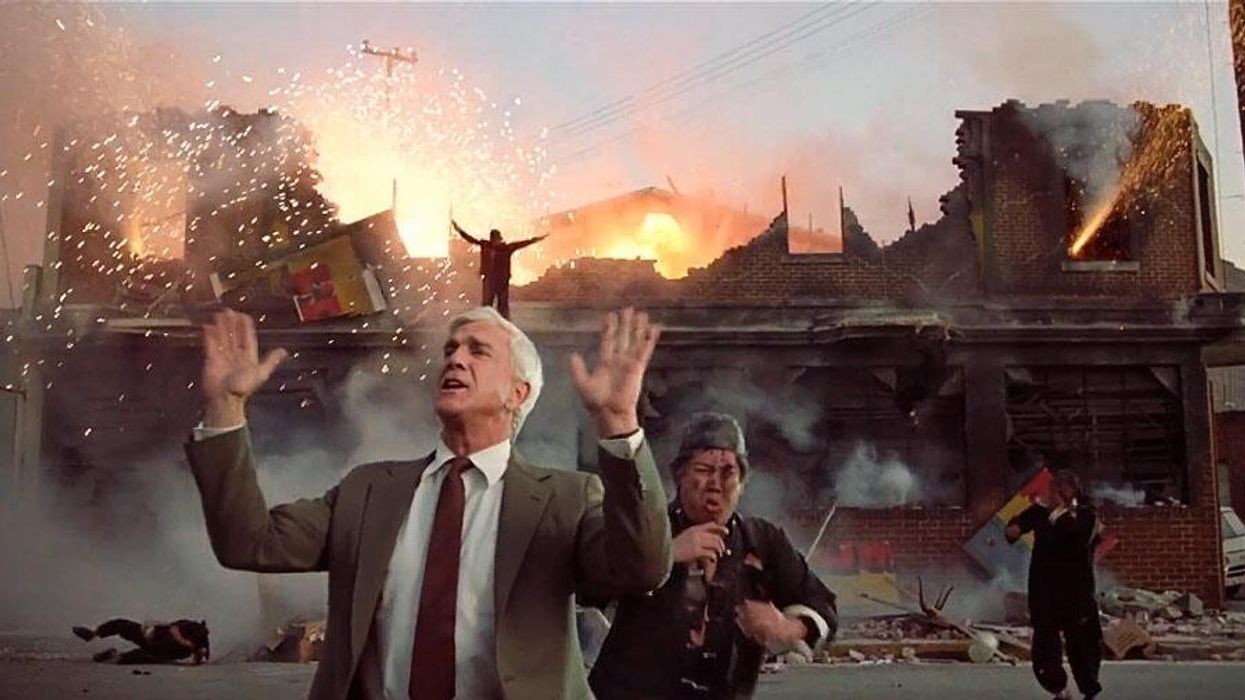The Difference Between (Dead) Cats and Dogs in Film
There is a famous double standard in cinema, but it's not the one you're thinking of.

With all the talk of inequality in Hollywood today, it's worth mentioning another (not as serious, but still) double standard that has long gone unaddressed. I refer, of course, to the blatant cinematic asymmetry between the emotional reaction we have to the on-screen deaths of cats versus those we have for dogs. Because, as this video essay from Keyframe demonstrates, while the cinematic demise of every pooch is almost always a cause for tears, a way for directors to tug at the metaphorical heartstrings, the on-screen deaths of cats are usually played for laughs.
In Wes Anderson's The Grand Budapest Hotel, when the Persian cat doted on by Jeff Goldblum's character, Deputy Vilmos Kovacs, is callously and casually defenestrated by Jopling, the sinister henchman played by Willem Dafoe, Goldblum deadpans the moment (because, well, that's what he does), and the beat is played for ironic, Andersonian laughs, but laughs nonetheless, down to the framing of the feline's corpse, which is, of course, symmetrical, as per the director's aesthetic.
This moment is referred to by the website Cats On Film (and no, I did not make that website up) as a "Catrifice," a portmanteau defined (by them) as a "a cat which is harmed or even killed in the course of a narrative." It then goes on to list a number of examples, includingThe Fly (the 1958 version, so we are spared two catrifices by Mr. Goldblum in one post.)
"Cartrifice: a cat which is harmed or even killed in the course of a narrative."
They further remark that, "the image of the dead Persian is so distant and stylized that it’s hard to get too upset about it." (And one imagines that if any website would get upset about it, Cats on Film would probably be the one.) The New Yorker has even gone so far as to ask, with a straight-face, "Does Wes Anderson hate cats?" Now, engage in a little thought experiment: reverse the situation, and turn that cat into a dog; it wouldn't have been so funny, probably, would it? Probably not.
For further evidence of the low-esteem with which cats are (cinematically) held, one need look no further than this list of the Top 10 saddest animal deaths in movies, from Watch Mojo.
Besides an owl, a spider, an ant (!) and a piglet, the list contains five dogs, dogs whose deaths are heart-wrenching, certified tear-jerkers, including the titular Old Yeller; Hooch (from the Tom Hanks' opus,Turner & Hooch), as well as more recently deceased movie mutts, like Will Smith's in I Am Legend, or Marley from Marley and Me. The only cat on the list isn't even a cat, but a lion, and not even a real lion, but Mufasa, the regicide and father of Simba fromThe Lion King. And, I think it's safe to opine that Mufasa doesn't count, because cats don't talk, especially not with the sonorous timbre of Mr. James Earl Jones, and, as far as I know, they do not live under any sort of monarchy. Furthermore, despite what The New Yorker would have you believe, cats are not cartoons.
The fact is, in the movies, dogs almost never "die funny." As Keyframe notes, "The formula for a 'dead dog joke' is much more complex. For a dog to die a humorous death, we cannot see the actual death take place." A rare example is cited, from National Lampoon's Vacation, where a dog meets its maker while tied to a car bumper (which, yikes).
We see Chevy Chase tie the dog to the bumper and then we cut to the family driving down the road a few minutes later. It’s only when the police officer pulls them over that we make the connection that the dog was never untied from the bumper. And the comedic payoff doesn’t come from the death of the animal, but the contrasting reactions of the officer and Chevy Chase.
That's the key to that scene, but the reasons for the fundamental disparity in emotional response to the fates of the two species are way too complex to get into here, if there are even reasons reasonable people can agree on. Suffice it to say, it's a tad odd that when a movie cat kicks the can, people giggle, but if a pooch dies, it can put an audience into hysterics. Though, really, when you stop and, you know, think about it, it's not about cats or dogs. It's about people and the way we project ourselves onto everything around us.
And even more than that, it's about how cats and dogs (especially cats and dogs with the voices of Michael J. Fox and Don Ameche) can work together and go on incrediblejourneys, you guys—like the furry friends in Homeward Bound.
Sometimes, when I close my eyes, I can see the day when people will weep at the sneezes of a Calico just as much as they choke up at a Labradoodle with indigestion. (I can't really see that. That would be weird—if I could see that. And I wouldn't tell anyone either—if that was the case. It's not the sort of thing you want going around, really. But, I digress.) Because—incredible journeys, you guys.
Source: Keyframe












